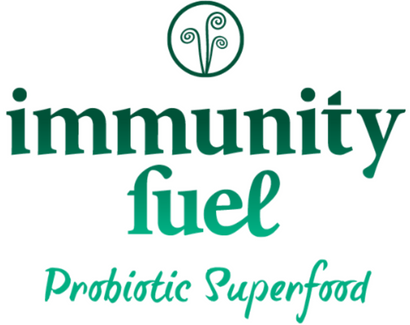Flat Rate Shipping AUS-Wide | Free Shipping Over $150 | Subscribe & Save
Flat Rate Shipping AUS-Wide | Free Shipping Over $150 | Subscribe & Save
Boost Your Health with Gut-Friendly Foods
August 29, 2024 4 min read

When we think about eating healthily, we often tend to think its just to improve our overall physical and mental wellbeing, but we should also think about the health of our gut.
In fact, if you truly want to digest all that healthy food properly, then your gut health is even more important.
Without a balance of good bacteria in your gut, you will not be able to digest and utilise the nutrients within your food.
So, what are some of the best gut health foods that you can add to your diet today?
6 Essential Types of Gut Health Foods
1. Fermented Foods
Fermented foods have been consumed for centuries in various cultures, and they are among the best foods to support gut health. Examples of fermented foods include yogurt, kefir, sauerkraut, kimchi, miso, and kombucha. During the fermentation process, beneficial bacteria are produced, which help maintain a diverse and balanced gut microbiota.
Probiotic-rich fermented foods contribute to a healthy gut by promoting the growth of beneficial bacteria, which aid in digestion, improve nutrient absorption, and enhance the gut's immune function. Additionally, fermented foods may help alleviate gastrointestinal issues.
2. Prebiotic-Rich Foods
Prebiotics are non-digestible fibres that serve as food for the beneficial bacteria in the gut. They are commonly found in fruits, vegetables, and whole grains. Examples of prebiotic-rich foods include bananas, garlic, onions, asparagus, oats, and legumes.
By promoting the growth of good bacteria in the gut, prebiotics help improve gut health and maintain a balanced microbiome. They also support the production of short-chain fatty acids (SCFAs), which play a crucial role in reducing inflammation, improving gut barrier function, and enhancing overall gut health.
3. High-Fibre Foods
Dietary fibre is essential for gut health as it helps regulate bowel movements, prevents constipation, and provides a substrate for the growth of beneficial bacteria. Foods high in fibre include whole grains, fruits like apples and pears, vegetables like broccoli and Brussels sprouts, nuts and seeds and cereal grains such as millet.
A diet rich in fibre supports a diverse gut microbiome, which is associated with various health benefits, and can contribute to a feeling of fullness, so you don’t overeat.
4. Omega-3 Fatty Acids
Omega-3 fatty acids are known for their anti-inflammatory properties and are beneficial for gut health. They can be found in fatty fish (e.g., salmon, mackerel, and sardines), flaxseeds, chia seeds, and walnuts.
The anti-inflammatory effects of omega-3 fatty acids help maintain a balanced gut microbiota and reduce the risk of inflammatory conditions in the digestive system. Additionally, they promote a healthy gut lining, enhancing the gut's ability to act as a barrier against harmful substances.
5. Essential Amino Acids
Amino acids are the building blocks of proteins, and they play several essential roles in maintaining a healthy gut and overall digestive function. Amino acids protect the cell microbiotia by providing nutrition to them, supporting intestinal cell repair, producing serotonin, and assisting with protein digestion.
All 9 essential amino acids can be found in foods known as complete proteins, for example beef, poultry, fish, eggs, dairy, soy, quinoa and buckwheat. Incomplete proteins contain some but not all of the essential amino acids, for example nuts, seeds, beans and some grains.
6. Digestive Enzymes
Digestive enzymes are essential proteins produced by the body to aid in the breakdown of food into smaller, more easily absorbable components. They play a crucial role in promoting gut health by facilitating efficient digestion and nutrient absorption. These enzymes are secreted by various organs along the digestive tract, including the salivary glands, stomach, pancreas, and small intestine.
Fermented foods are a rich source of digestive enzymes, which are produced during the fermentation process when bacteria & yeast consume carbohydrates. Other foods that naturally contain digestive enzymes include kiwifruit, mango, pineapple, avocado, yogurt, and ginger.
Nurturing Your Gut with Healthy Foods
Taking care of your gut health is paramount for overall well-being, and the foods you consume play a critical role in supporting a thriving gut microbiome. Incorporating gut health foods into your diet can go a long way in nurturing a healthy gut.
By prioritizing gut health foods, you can enhance digestion, boost your immune system, reduce inflammation, and even improve your mental well-being.
Remember, a balanced and diverse gut microbiota is the foundation of good gut health, leading to a happier and healthier life. So, make the right food choices today and prioritize your gut health for a better tomorrow.
Looking to improve the overall health of your gut? If so, then we've got you covered with our range of certified organic gut health foods that are perfect for helping you maintain and achieve a healthy gut. Immunity Fuel not only contains plenty of nutritious gut-health super-foods and prebiotics but is also teeming with live bacteria which transform the nutrients into a readily available energy source.
